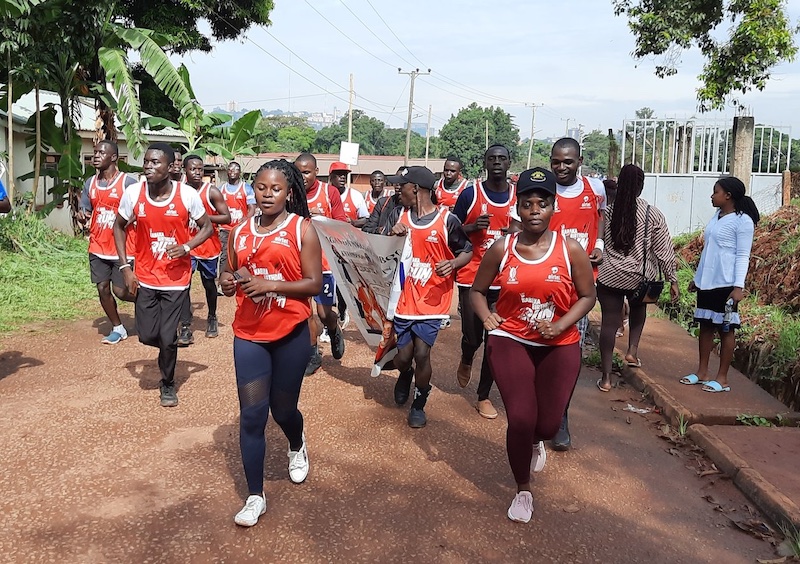
At dawn in Mengo, the sound of sneakers slapping against tarmac has become more than a sign of celebration; it’s a symbol of survival.
What began as a festive run to honor the Kabaka’s birthday has grown into one of Uganda’s most successful community health campaigns. Six years after Buganda kingdom dedicated the Kabaka’s Birthday Run to fighting HIV/Aids, officials say new infections in the region have dropped by an astonishing 78 per cent.
The announcement came last week during a partners’ breakfast meeting at Bulange, where the kingdom’s leaders, health officials and donors gathered to take stock of the impact. The kingdom’s second deputy katikkiro and minister of Finance, Robert Waggwa Nsibirwa, attributed the decline to the campaign’s community-first approach.
“Since His Majesty dedicated the annual run to the fight against HIV/ Aids, infection rates have dropped significantly,” Nsibirwa said.
“In 2020, 10 districts in Buganda were among the most affected. Today, only Masaka, Kyotera and Kalangala remain with notable challenges. The prevalence rate has fallen from 9.1 per cent to 7.5 per cent, while the number of people receiving antiretroviral therapy has increased from 81 per cent to 98 per cent.”
According to the kingdom’s latest report, this year’s Kabaka’s 70th Birthday Run raised Shs 2.9 billion (about US$750,000). The funds were used for HIV testing, community sensitization, and awareness drives across Buganda’s 18 counties.
Nsibirwa said the initiative’s transparency and grassroots model had been key to its success.
“Our cultural structures make it possible to reach households directly through bonfire discussions, health camps and workshops,” he explained. “Testing and counseling are now accessible and stigma-free.”
Buganda’s prime minister, Katikkiro Charles Peter Mayiga, described the kingdom’s progress as a transformation rooted in both compassion and persistence.
“None of us who lived through the 1980s and 1990s can forget how difficult those years were,” he said, recalling the height of the HIV epidemic. “Back then, awareness was our biggest challenge. Today, we are seeing real results—fewer infections, more people on treatment, and communities that are actively engaged in saving lives. These achievements go beyond statistics; they represent hope, health and resilience.”
Mayiga praised the partnership between Buganda kingdom, the Uganda AIDS Commission, UNAIDS and the private sector, crediting their collaboration for sustaining the campaign’s momentum.
He urged continued vigilance, emphasizing the need for regular testing, protection and adherence to treatment. Dr Ruth Ssenyonyi, chairperson of the Uganda AIDS Commission, agreed that Buganda’s approach had become a model for the rest of the country. “The kingdom’s cultural influence has deepened community ownership of the HIV response,” she said.
“More men and young people are testing, more are on treatment, and stigma has greatly reduced.” What makes the Kabaka’s Birthday Run stand out, health experts say, is how it turns culture into a conduit for change. In a region where the monarch’s influence runs deep, the Kabaka’s call to fight HIV carries moral weight, and practical results.
The annual event draws tens of thousands of runners from every corner of Buganda, transforming what was once a private health issue into a collective mission of pride and unity.
Each year, the sea of runners in red T-shirts stretches through Kampala’s streets, a living reminder that community-driven solutions still hold power in Uganda’s fight against HIV. And as the kingdom looks ahead to the next decade of its campaign, one message echoes from Bulange to the hills of Masaka: the run goes on—not just for fitness, but for life.



